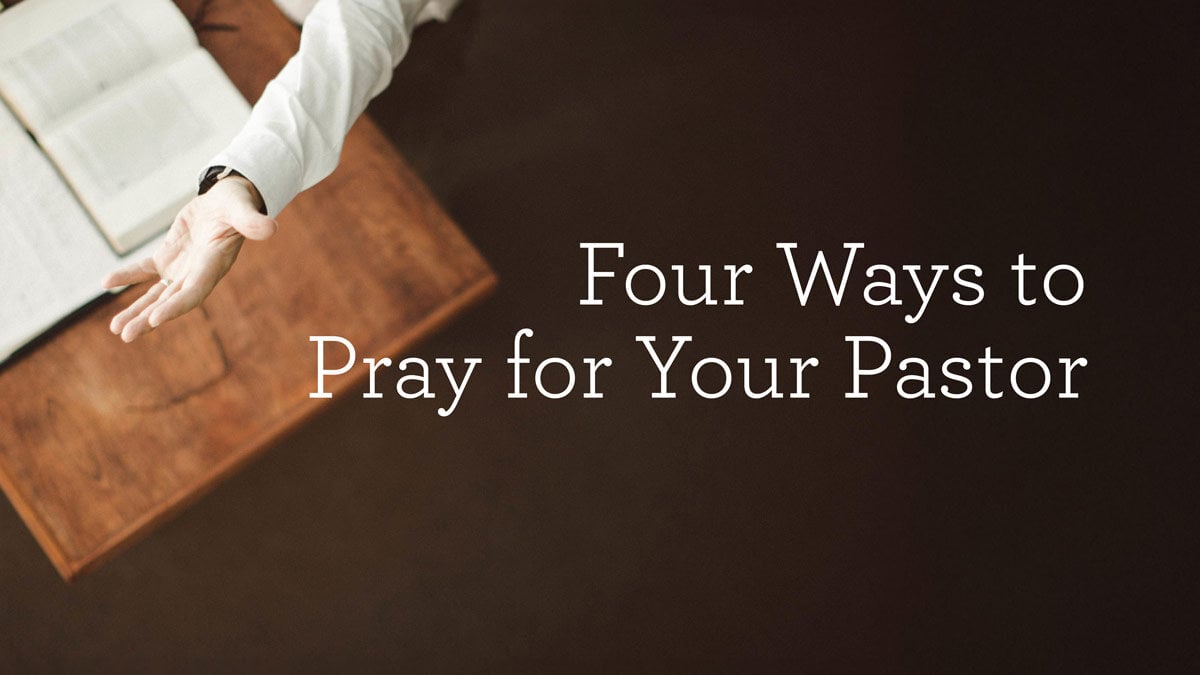Hope for the Lonely
For the frustrated, disaffected believer on the fringes of the church—feeling disconnected, unwanted, or not at the center of things—there’s good news. True belonging is possible, and true, meaningful community can be cultivated. You can find a place to belong—to be fully known and fully loved by God and your community.
But like most worthwhile things, belonging won’t come easy or without cost. What does it look like to discover (or rediscover) Christian community? I want to suggest three ways you can cultivate authentic community in your church: reset for relationships, take initiative in friendships, and find healing in relationships.
1. Reset for relationships.
Since community doesn’t come naturally, we have to reset many aspects of our lives. We have to slow down and resist the culture of hurry around us. It may mean that we’re not able to work late into evenings or on weekends. Or it may mean we need concrete plans to attend weekly worship gatherings, to participate in a weekly small group or Bible study, or to serve with others in the community. A deep, connected life with others requires a new set of priorities and patterns. But it is worth it.
It’s helpful to think of our daily lives in terms of discipleship patterns, the habits of life we have learned both intentionally and unintentionally. In this broad sense, discipleship is always happening: We become what we consume, as our patterns of life direct and dictate our deepest feelings, thoughts, and motives. We are always being conformed to the heart and personality and lifestyle of another person or system.
Why Do We Feel Lonely at Church?
Jeremy Linneman
Why Do We Feel Lonely at Church? addresses the loneliness epidemic facing the church, encourages readers to pursue a life of fellowship, and urges church leaders to cultivate communities that reflect Jesus’s mission, ministry, and care.
In The Spirit of the Disciplines, Dallas Willard wrote that the primary way we are conformed to Jesus (once we are regenerated, and united to him by faith) is by following him in the overall pattern of his earthly life.1 With the help of the Holy Spirit, by obeying Jesus’s teachings, meditating on his sufferings, death, and resurrection, and practicing his way of life, we become like him. It follows, then, that if the way to become like Christ is to follow his way of life, then Jesus’s own earthly friendships should point us to the ideal pattern of human flourishing in relationships.
To do this, we need to repattern our lives around relationships—our fellowship with God and our fellowships with others. We cannot love others only in theory, saying we love others while hardly knowing them or spending time with them. We must prioritize the long obedience of relationship building, serving and caring for others even when it is most difficult for us.
2. Take the initiative in friendships.
I’ve heard countless people over my years of ministry say that they don’t feel connected or that people haven’t reached out to them. I always begin by lamenting that with them. But I also remind them that those with the deepest connections are typically those who take the initiative. Once again, the earthly life of Jesus provides an important pattern. Jesus frequently took initiative with others.
- He showed devotion to his closest friends, the disciples (Mark 3:13–19).
- He pursued disliked community members (Luke 5:29–32; 19:1–10).
- He engaged in conversation with those of other cultures (Luke 7:1–10; John 4:7–9).
- He ate with friends, family members, and guests (Luke 10:38–42; 11:37–38; 22:14–38).
- He attended weddings, funerals, and cultural events (Matt. 26:17–25; John 2:1–12).
- He pursued relationships with the poor and needy (Luke 7:36–50; see also Luke 14:12–24).
Jesus’s earthly life demonstrates a deep commitment to relationships and a remarkable sense of initiative. Further, he was never in a hurry, he embraced meals with others, and he accepted nearly every invitation that was made to him. Although his primary work was to proclaim the kingdom, call people to repentance and faith, and gather disciples to himself, Jesus hardly did anything alone. After all, his time on earth had a singular purpose: to glorify God by returning his lost sheep to him.
If this is how the Son of God ordered his life on this earth, what would it look like for us to follow in his ways? To not only play the host but join people where they are? To pursue those outside the fold? To attend gatherings and events with intentionality and for the sake of others’ (and our) spiritual transformation?
For those in my own congregation who are feeling disconnected or on the fringes, I resist promising that others will soon reach out to them. I remind them that many others at church are new and trying to find their way as well. If you’re waiting for someone to walk up to you and strike up conversation, there’s a good chance they’re waiting for you to do the same.
My experience has been that those who take initiative are the ones who have the most and deepest relationships in the church. It’s a vitally important practice. Nonetheless, for those of us who have suffered church hurt, there’s another step we must take.
If you are a child of God, you have been called and commissioned to live for him with purpose, dignity, and giftedness.
3. Find healing in relationships.
Many of my close friends who have left the church have suffered real disappointment and hurt at the hands of Christians. Some have suffered tragic spiritual abuse from ministry leaders. It’s no surprise, then, that they have moved away from Christian community. I mourn for my sisters and brothers who have gone looking for God and family only to find judgment, condemnation, and abuse.
Perhaps this is where you find yourself. If so, it’s likely you feel torn between wanting to run as far from the church as possible and, at the same time, longing to return to it for healing and recovery. As I have pastored countless people (young and old) in this spot, my counsel is this: since we are hurt in relationships, we can only find healing in relationships.
When others sin against us, our natural tendency is to move away from all other people. When we sin ourselves—or merely disappoint others—it’s natural to withdraw into shame and isolation. But while this withdrawal may be a natural survival instinct, it won’t lead to our complete healing. At some point, we must move toward others to find comfort and healing. As relational beings, we can’t learn to trust others, build friendships, or become whole through an isolated life.
If you are a child of God, you have been called and commissioned to live for him with purpose, dignity, and giftedness. Don’t let those who have sinned against you determine your future. You may need to seek wise counseling and spiritual direction, and it may take time. But healing and renewal can be found in Christ and his church. You can move toward others with trust and hope again, not because your next community won’t fail you but because God will never fail you. And the Lord often ministers to us through the presence and love of others.
Dear friend, hurt and frustrated by the church, I want to lovingly encourage you: Don’t give up. Hang in there. Seek the Lord with others, and recommit to life in an imperfect church community.2
Notes:
- Dallas Willard, The Spirit of the Disciplines: Understanding How God Changes Lives (San Francisco: HarperOne, 1999), ix.
- For more on this theme, see Jeremy Linneman, “Embrace True Belonging in the Church,” in Before You Lose Your Faith: Deconstructing Doubt in the Church, ed. Ivan Mesa (Wheaton, IL: Gospel Coalition, 2021).
This article is adapted from Why Do We Feel Lonely at Church? by Jeremy Linneman.

Jeremy Linneman serves as the lead pastor of Trinity Community Church in Columbia, Missouri. He writes on spiritual formation and community for the Gospel Coalition and is completing his DMin at Covenant Theological Seminary. Jeremy and his wife, Jessie, have three sons.
Related Articles
11 Passages to Read When You Feel Lonely
July 04, 2022Be strong and courageous. Do not be frightened, and do not be dismayed, for the LORD your God is with you wherever you go.
Why Do We Feel Lonely at Church?
July 16, 2024In this video, Jeremy Linneman takes time to explain why the mounting problem of loneliness matters and offers suggestions for how we might build spiritual communities for ourselves.
Dear Pastor . . . in a Lonely World, Cultivating Community Is Worth It
March 03, 2024Of all the many things we do, cultivating spiritual community in a lonely world ranks among the most difficult, time-consuming, and personally demanding efforts.
The Hollow Promise the Internet Makes to Lonely People
February 16, 2024The web is preaching to our hearts that you can be anything and you can do anything, and you don’t have to accept the life of the world or the truth that God has put in your life.
Crossway is a not-for-profit Christian ministry that exists solely for the purpose of proclaiming the gospel through publishing gospel-centered, Bible-centered content. Learn more or donate today at crossway.org/about.












 English (US) ·
English (US) ·